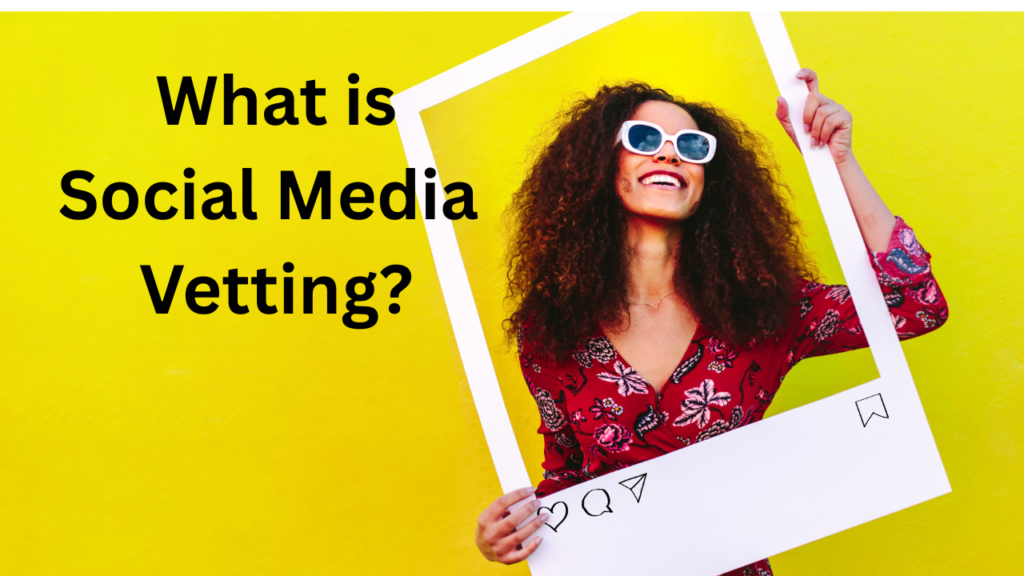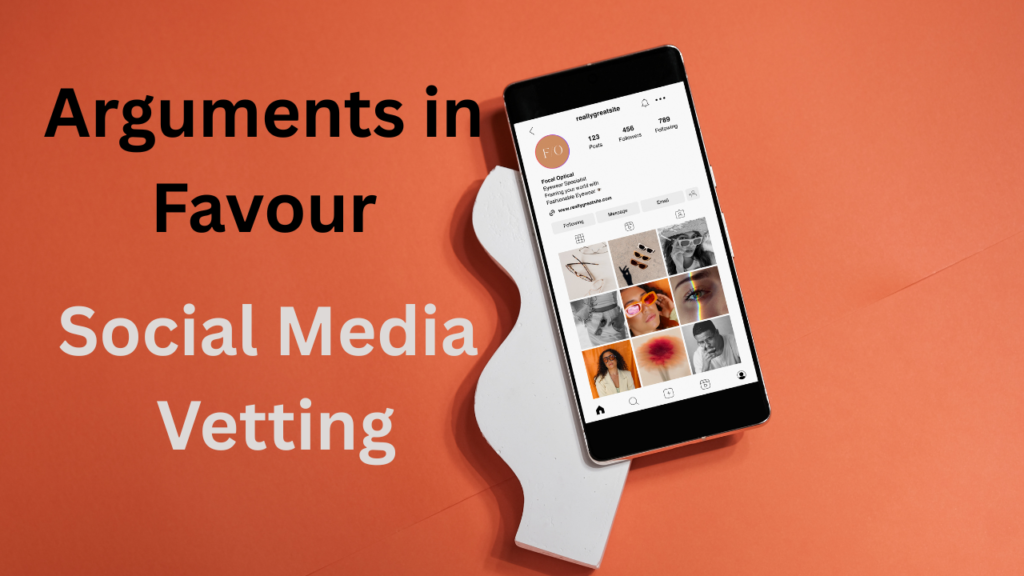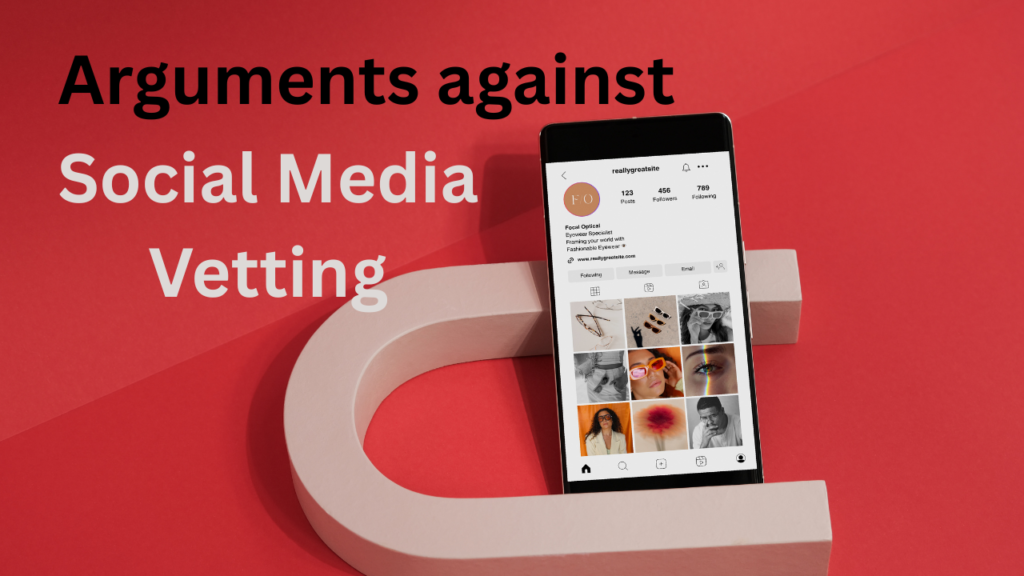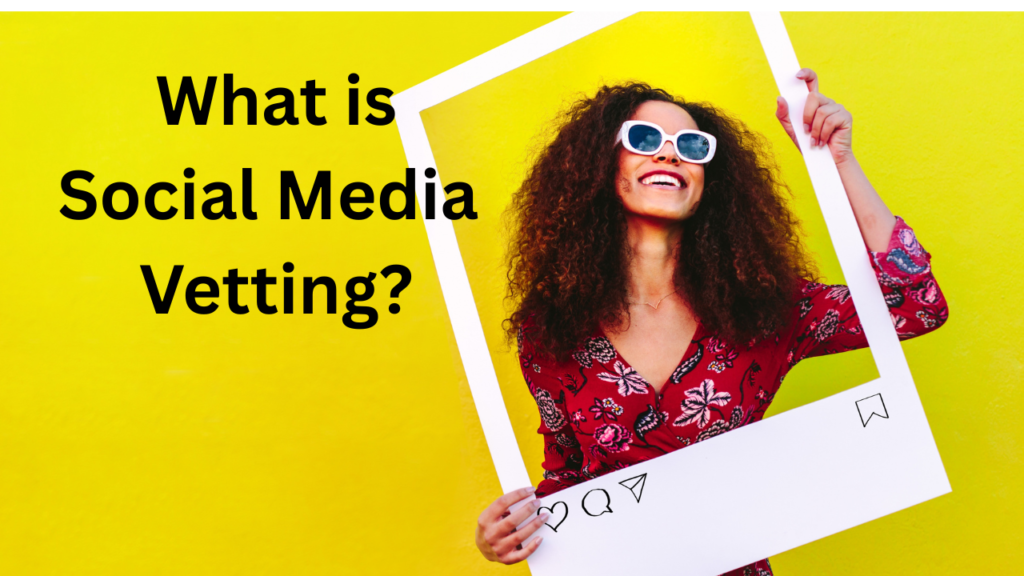For a long time, America has been a beacon for international students. Recently, the Trump administration has pushed forward to monitor social media accounts of visa applicants. A vital step that will transform the immigration system.
What is Social Media Vetting?
Social media vetting is the process of monitoring an individual’s or organization’s social media profiles and online activity to evaluate their behaviour and character. It is used by employers and government agencies to do background checking of an individual.

Arguments in Favour of Social Media Vetting (Pros)

Is social media a reliable narrator of human behaviour?
Is social media a true representation of a person’s identity?
Can creating social media walls build a secure place for a nation like America?
Today, we will discuss the topic “Arguments in favour of and against “Social media vetting of foreign students.”
1. National security: –
- Screening of social media handles can help identify potential threats like extremism.
- People with malicious intent can be stopped from entering the country.
- Example: Tashfeen Malik (San Bernardino attack, 2015). Tashfeen Malik, a Pakistani national, entered US on K-1 fiancé visa to marry Syed Rizwan Farook.
- On December 2, 2015, the couple married and carried out a terrorist attack in San Bernardino, California. In it, 14 people were killed and 22 injured.
- Malik had posted extremist content on social media before her visa was approved.
- But US authorities did not screen her social media as part of the visa vetting process at that time.
2. Fraud Detection: –
- It helps to verify the authenticity of a student’s background by going through their social media handles.
- Digital Surveillance can bring to light any false claims made by an individual about his or her academic history.
- Example: In 2020 an Indian student was banned for fake IELTS score. His student visa was revoked when they discovered his Instagram post which boasted about bribing an exam proctor.
- Case: A Chinese student was caught lying about Academic credentials in 2017. He claimed to have graduated from a prestigious high school in China with top grades.
- However, when US consular officers checked his social media account, it was found that the student had complained about failing exams and being held a year.
- Furthermore, screenshots from his classmates revealed that he had never graduated from a prestigious high school.
3. Public Safety: –
- The risk of campus espionage is reduced as high-risk individuals are filtered.
- It ensures that people adhere to the immigration laws.
- Example: In 2019, social media vetting prevented a potential school shooting. A Saudi national applied for a U.S. student visa to attend a University in Florida.
- When the U.S. Customs and Border Protection reviewed his social media history, they found that he had praised past school shooters of 2018, Parkland, Fly massacre in his deleted Twitter and WhatsApp posts.
- This case is an instance that proves that social media vetting also saves lives.
4. Consistency with Immigration policies: –
- Some countries already conduct background checks of applicants. A social media screening is an additional layer of scrutiny.
- The scrutiny should go according to the cybersecurity measures and counter terrorism.
- Example: In 2022 a Brazilian national was denied visa for inconsistent travel history. He had applied to for visa to attend a community college in California.
- He had mentioned in his application that he had never visited U.S. before and had no family ties there.
- However, when U.S. consular officers checked his Instagram and Facebook accounts, they found photos of him in New York and Miami from a previous trip. He had tagged posts with a cousin living illegally in Texas. Visa was denied to. Applicants are required to disclose their family history and family ties to comply with immigration policies.
Arguments against Social Media Vetting (Cons)

1. Privacy Concerns: –
- Social media surveillance allows monitoring of private communication and non-public posts.
- A joke shared on social media will become evidence of character. This may curtail their right to free expression.
- Students will become aware that they will be justified in past opinions.
- Moreover, those who genuinely pose a threat are unlikely to announce their intentions on social media.
2. Bias and Discrimination: –
- Platforms like Facebook and Twitter use algorithms that make users appear more extreme than they are.
- If more people of a particular nationality do not comply with immigration policies, then there is a risk of profiling based on ethnicity and religion.
- This would lead to unfair rejections.
3. Ineffectiveness.
- Individuals can hide or manipulate their online presence. If an individual uses humour that doesn’t translate across national boundaries, then the posts can become permanent records that can be weaponized against them.
- This also raises serious concerns about data security and privacy.
- U.S. authorities will be collecting and storing a vast amount of personal information about foreign students, which could be vulnerable to misuse or hacking.
4. Chilling Effect on national education: –
- It will have a chilling effect on national students who contribute billions of dollars to the American economy.
- An individual’s jokes or political opinions are subject to government scrutiny even before they set foot on American soil.
- This perceived hostility may deter talented students from applying.
- This will hit their university’s revenue and global academic collaboration.
Certainly, social media monitoring of visa applicants is an example of how fear and determination can make a nation less secure than in the past.
Also Read:-
- English Vedas Blog
- Homework: Should It Be Banned or Not? 5 Reasons for the Debate
- The Future Perfect Tense: The Ultimate Guide to Example Formula Sentences & Their Structure!
- Mastering the Past Perfect Continuous Tense: 30 Example Sentences and Exercises to Boost Your Grammar Skills

Written by Sukhjit Kaur, English educator with 17+ years of experience helping students master grammar and writing. Through EnglishVedas.com, she simplifies English grammar using examples from daily life and classrooms.

